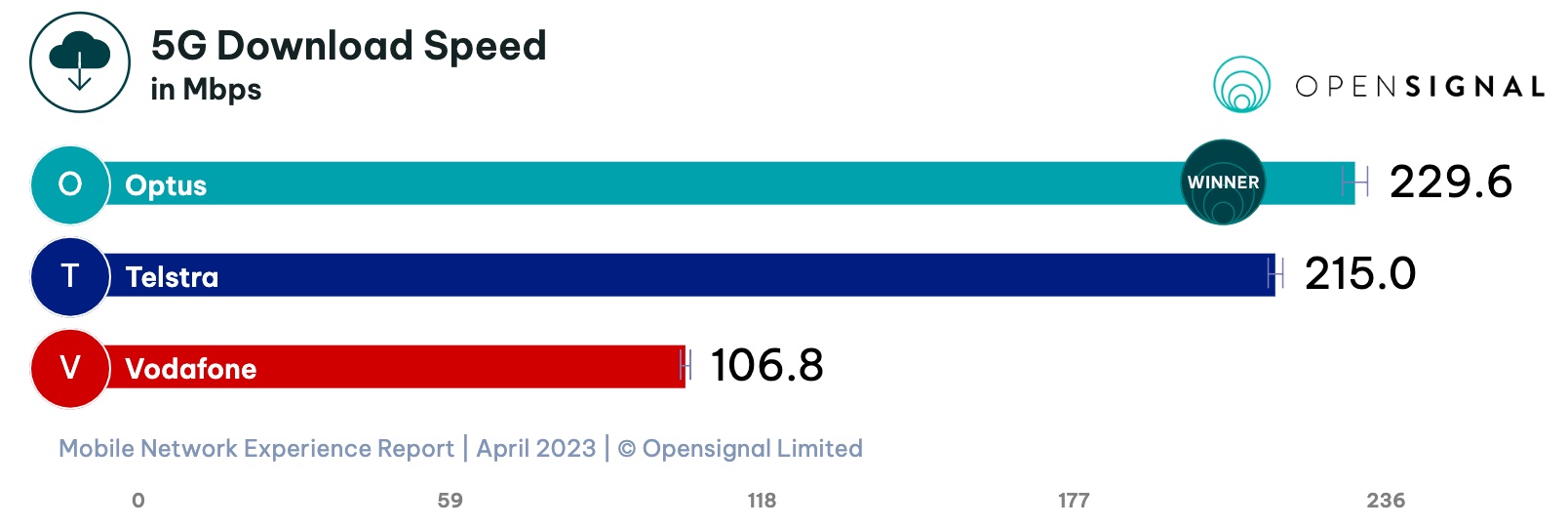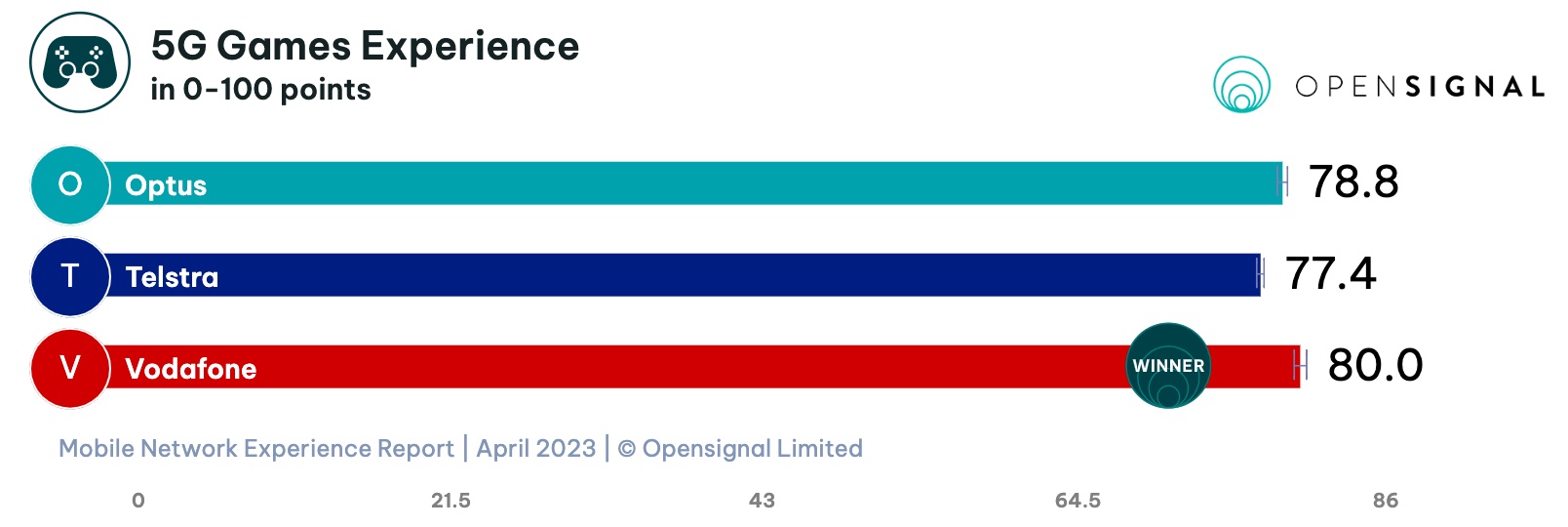Telstra and Optus thrash Vodafone for 5G speed in latest report
But Vodafone still has some tricks up its sleeve

Sign up for breaking news, reviews, opinion, top tech deals, and more.
You are now subscribed
Your newsletter sign-up was successful
Both Telstra and Optus are light years ahead of Vodafone when it comes to 5G download speeds, according to a new report by independent communication analyst Opensignal.
Among Australia’s three major telcos, Optus is leading the pack with the fastest average 5G download speed of 229.6Mbps. Telstra is only marginally behind, clocking in with an average speed of 215Mbps. Vodafone was found to have less than half of its competitors’ 5G speed, reaching downloads of 106.8Mbps on average.
Opensignal’s data was collected from January to March in 2023.

While Vodafone was smashed in the 5G download speed metric, it fares better when it comes to the overall download speed experience, which includes 3G, 4G and 5G networks.
There was less of a gap between the providers, with Telstra coming out on top with average download speeds of 59.6Mbps. Optus trailed with 55.7Mbps, while Vodafone’s overall download speed was 47.8Mbps on average.
All of Telstra, Optus and Vodafone’s mobile plans come with 5G connectivity as standard. Below is a widget comparing the most affordable 5G plan from each telco.
Vodafone’s surprising 5G wins
Opensignal’s report analysed more than just 5G download speeds – it also looked at the availability of the nation’s 5G networks. It’s important to note that Opensignal’s 5G availability metric doesn’t equate to network coverage. Instead, Opensignal says that 5G availability is a measure of the time spent connected to the network once the initial connection has been made.
Sign up for breaking news, reviews, opinion, top tech deals, and more.
Interestingly, Vodafone wins this metric in OpenSignal’s testing. The report found that Vodafone had the highest 5G availability (again, not to be confused with network coverage) among the big three telcos, allowing its 5G users to stay connected to a network 30.8% of the time where it was available.
Telstra and Optus were lagging behind Vodafone, with Telstra’s 5G customers able to connect 19.2% of the time, while Optus users could connect 12.1% of the time.
We would speculate that Vodafone’s high 5G availability is due to fewer users being connected. With Telstra and Optus having a wider 5G footprint than Vodafone, as well as a higher number of users, it’s possible that Telstra and Optus’ 5G towers are at capacity more often, and therefore some of their users need to be dropped down to 4G speeds more frequently.

Another surprising win for Vodafone, however marginal, came for its 5G games experience. Vodafone pulled ahead of Telstra and Optus with 80 points for 5G gaming, with Optus a smidge behind at 78.8, and Telstra attracting 77.4 points – all out of a possible 100.
Opensignal says its 5G games experience metric, “measures how mobile users experience real-time multiplayer mobile gaming on an operator’s 5G network”.
Despite Vodafone’s low 5G download speed, you don’t typically need lots of bandwidth for online gaming – factors such as low latency, packet loss and jitter are more important, which are impacted by server location, not the telcos.

Why Vodafone’s still worth your money
Opensignal’s report tells us how each telco performs in real-world usage, but it doesn’t get to one of the biggest factors in your buying decision – cost. When we stack up Telstra, Optus and Vodafone in terms of price, Vodafone is a clear winner.
The cheapest plan from Vodafone costs AU$45 a month, and it gets you a very healthy 40GB of data. Compare that to Optus, where the most affordable option is a little more at AU$49 a month, but you’ll only get 30GB of data to burn through. Telstra’s cheapest plan isn’t really cheap at all, setting you back AU$58 a month for 40GB of data.
At a time when cost of living is biting, we find it difficult to recommend a telco such as Telstra. That’s purely from a price perspective, which we’d argue is more important than download speed for most people.
If you want to take advantage of Telstra's extensive coverage without the price, we recommend going for a smaller telco that’s using the Telstra network. Mate is currently our #1 recommendation, or you can find more suggestions in our best SIM-only plans guide.
Vodafone may not be crushing it from a 5G download speed perspective, it certainly dominates when it comes to value for money. You can read more about the best Vodafone mobile plans, or see all its SIM-only options below:
- 5G home internet in Australia: what it is, plus the best plans and deals

Jasmine Gearie was previously an Ecommerce Editor at TechRadar Australia, with a primary focus on helping readers find the best mobile and NBN plans. During her time with TechRadar, she also reported on important telco news in Australia, and helped track down tech deals to help readers save money.